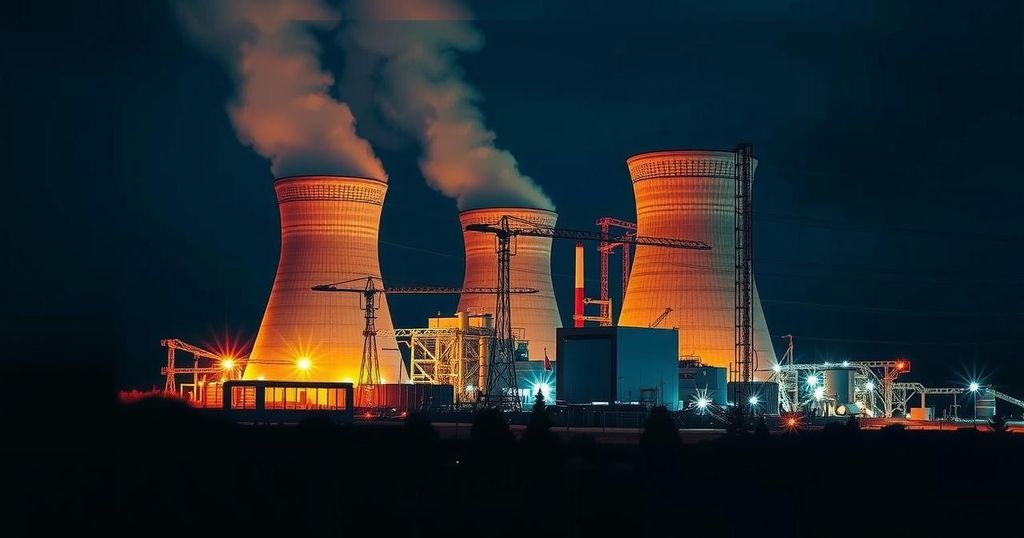The Resurgence of Nuclear Power: An Energy Renaissance?
Nuclear power, once in decline, is experiencing renewed interest due to technological advancements, corporate investments, and urgent climate goals. Countries like China and France are expanding their nuclear capacities, while innovations like Small Modular Reactors could address historical concerns. Despite potential benefits, issues such as radioactive waste management remain contentious and unresolved.
The nuclear power industry is experiencing a potential resurgence after years of decline, impacted by historical disasters, increasing energy demands, and climate change considerations. A decade ago, following the Fukushima disaster, many countries curtailed their nuclear programs, resulting in a notable loss of power generation. However, recent strategic investments by technology giants and renewed governmental interest have rekindled discussions around nuclear energy’s viability. Notably, countries like China, France, and South Korea are ramping up nuclear initiatives to meet energy requirements and carbon reduction goals, underscoring a shift in perception. New technologies such as Small Modular Reactors (SMRs) promise to address safety and cost concerns, although obstacles remain. The debate persists regarding nuclear energy’s cleanliness and economic viability amidst unresolved issues surrounding radioactive waste disposal.
Historically, nuclear power has been hailed for its potential to provide vast amounts of energy with minimal carbon emissions. Following the catastrophic events at Chernobyl and Fukushima, however, public apprehension grew. Increased safety regulations and financial constraints hampered the establishment of new facilities, resulting in reduced nuclear capacity globally. Nevertheless, recent developments involving significant investments by major tech companies and renewed governmental commitment hint at an industry revival driven by energy demands and climate commitments.
In summary, the nuclear power sector appears poised for a revival as governments and corporations alike pivot towards sustainable energy sources to combat climate change and meet rising demand. While technologies such as SMRs may provide pathways to mitigate historic safety and cost issues, significant challenges remain, especially concerning the management of nuclear waste. The successful navigation of these challenges will be crucial in determining the future of nuclear energy on a global scale.
Original Source: www.bbc.com




Post Comment